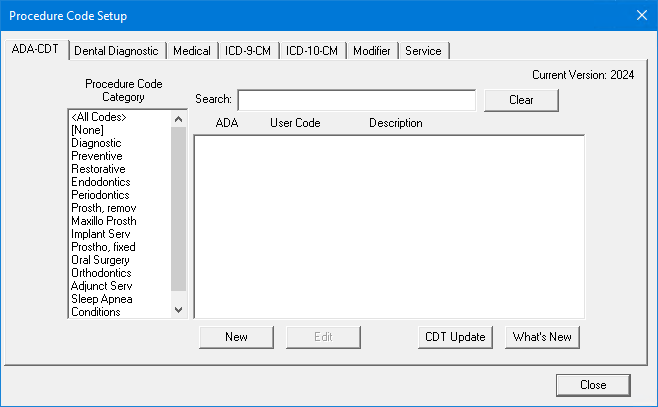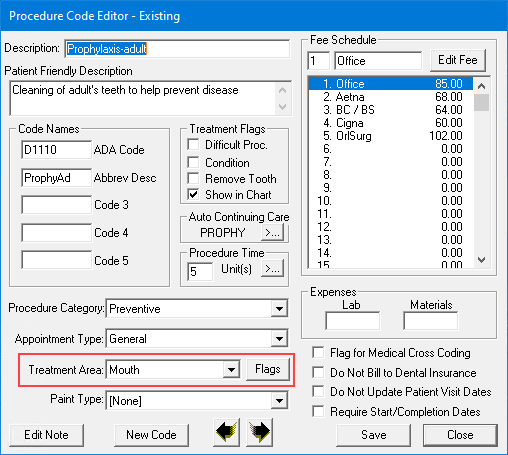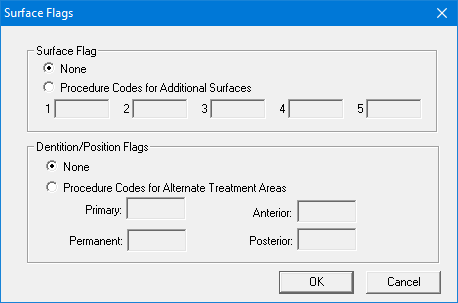

Each default procedure already includes the relevant flags. Changing the flags does not affect any previously entered or charted procedures for a patient. When you post work in the future, Dentrix changes the procedure codes automatically according to the options you selected in the Flags dialog boxes. You can suspend the treatment area flags by setting Dentrix preferences. To learn more, click the following links:
· Setting treatment area flags
· Setting tooth treatment area flags
· Setting mouth treatment area flags
· Setting arch treatment area flags
· Setting root treatment area flags
To set surface treatment area flags
1. In the Office Manager, click Maintenance, point to Practice Setup, and then click Procedure Code Setup.
The Procedure Code Setup dialog box appears.

2. To select a code, do one of the following:
· Type the first few characters of the ADA code, user code, or description in the Search text box.
· Select a Procedure Code Category and code from the respective list.
3. Click New.
The Procedure Code Editor dialog box appears.

4. Select Surface from the Treatment Area list, and then click Flags.
The Surface Flags dialog box appears.

5. Select one of the following:
· None - To not use the surface flag.
· Procedure Codes for Additional Surfaces - To enter the procedure codes to be used relative to the number of surfaces you enter when you chart the patient's procedure.
Note: If you select Procedure Codes for Additional Surfaces, you must fill in each of the text fields. For example, if there are only three additional procedure codes, you must repeat the procedure code in text field 3 in text fields 4 and 5 too.
6. Under Dentition/Position Flags, select one of the following:
· None - To not use the Dentition/Position flags.
· Procedure Codes for Alternate Treatment Areas - To enter the procedure codes relative to the treatment area (Primary, Permanent, Anterior, Posterior) when you post the procedure.
Note: If you select Procedure Codes for Alternate Treatment Areas, you must fill in the Primary, Permanent, Anterior, and Posterior text fields.
7. Click OK.
8. To complete the process for adding or editing ADA-CDT dental codes, click Adding ADA-CDT dental codes or Editing ADA-CDT dental codes, respectively.